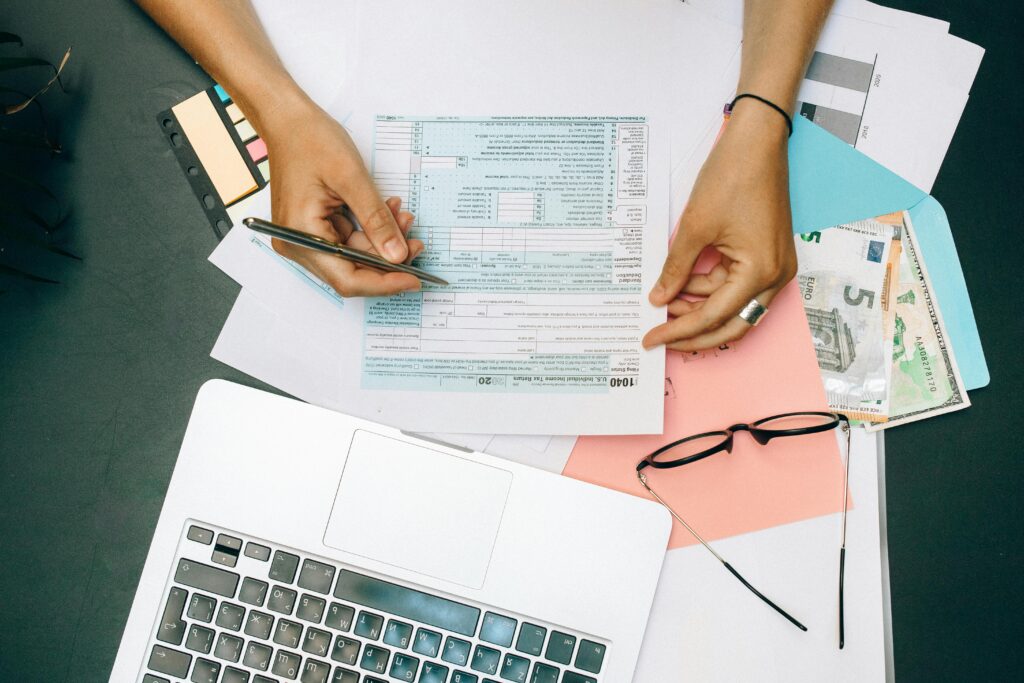6 Simple Tips To Minimise Your Tax Burden In The UK
Every year, a significant portion of your hard-earned income goes toward taxes. While this is a civic duty, everyone is looking for ways to minimise the tax burdens. From small businesses to freelancers to Lottoland lottery winners in the UK, almost everyone is seeking legitimate ways to minimise their tax burden because if this issue is left unresolved, it can eat into your wealth.
You see, there are several types of taxes in the UK that you should acquaint yourself with to grow your wealth. The good news is that you can achieve this through tax planning.
It involves looking into your financial situation to see how you can take advantage of tax breaks and deductions offered by the government. This way, you end up legally paying the least taxes possible.
With that in mind, here are ways you can minimise your tax burden in the UK. Read on!

6 Simple Tips To Minimise Your Tax Burden In The UK
1. Claim your Personal Allowance
Everyone in the UK receives a £12,570 personal allowance, a tax-free amount you can earn annually before income tax applies. This means you won’t pay any Income Tax if your income falls below the Personal Allowance.
If it’s above, only the amount exceeding the allowance is taxed. So, the higher your allowance, the less taxable income you have.
- Income £0 – £12,570 = 0%
- Income £12,570 – £50,270 = 20%
- Income £50,270 – £100,000 = 40%
- Income £100,000 – £125,140 = 60%.
2. Pay into a Pension
While there are several ways to benefit from personal allowance, paying into a pension is the most common. There are tax benefits when putting money into a pension. Your contributions benefit from tax relief, meaning you get tax deducted from them before they hit your taxable income. This lowers your tax bill upfront.
Secondly, funds growing within the pension are free from income tax and capital gains tax. They also don’t incur inheritance tax upon the pension holder’s passing.
So, how can you take advantage of this to lower your tax burden? Well, you should consider contributing more funds to the pension. As long as you are below 75 years old, you can contribute up to £40,000 to your pension yearly. This way, you’ll leave less money to be taxed.
However, keep in mind that things will change when you start taking money out of the pension in retirement. The income will be taxed like any other income.
3. Take Advantage of Marriage Allowances
Marriage allowance can help married couples or those in civil partnerships reduce their tax bill by allowing one partner to transfer a portion (up to 10%) of their unused personal allowance to their spouse. The spouse with a lower income must have an income below £12,570, while the spouse with a higher income should not exceed £50,271. Transferring 10% of their personal income can save them £250 yearly.
4. Give to Charity
Giving to charity can be a great way to support a cause you care about. It can also help minimise your tax burden. When you donate through Gift Aid, charities can reclaim the basic income tax rate (20%) on your donation.
For every £1 you donate, the charity can claim an extra 25p. This essentially boosts the value of your donation at no extra cost to you. However, your tax burden is also reduced.
For instance, if you’re a higher-rate taxpayer who has donated £1,000 to a registered charity, you can claim back £250 of that donation when filing your self-assessment tax return.
5. ISA Allowance
Unlike traditional savings accounts, interest earned on Cash ISAs and dividends received from stocks and shares held within a Stocks & Shares ISA is completely exempt from income tax. This makes your money compound faster as you keep all the earned interest or dividends.
Moreover, ISA contributions are deducted from your taxable income, so you don’t have to pay any income tax. Everyone has a £20,000 ISA allowance annually. The good thing about ISAs is that you can withdraw your money whenever you want — so it’s a good account.
6. Dividend Allowance
If you usually receive dividends each year, you need to take note of this allowance. It allows you to receive a certain amount of dividends yearly without paying any Income Tax.
Currently, you can earn up to £500 in tax-free dividends, which is a drop from £1000 last year. But even if it surpasses this threshold, dividend tax rates are lower than income tax rates.
Final Word
There you have it: six ways to minimise your tax burden in the UK. While individually, they may not save you a lot of money, using several will. Always check the relevant government website for updated information about each allowance. You can also work with a tax accountant to help you limit your liabilities.









